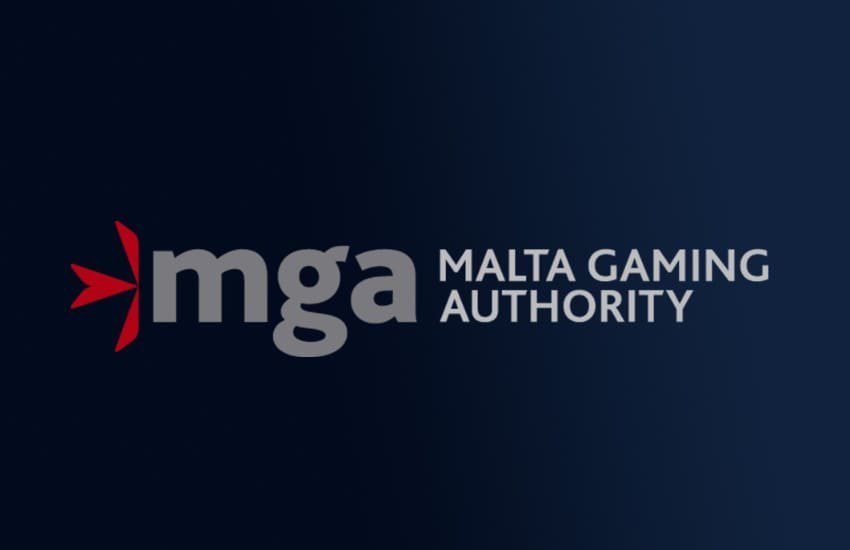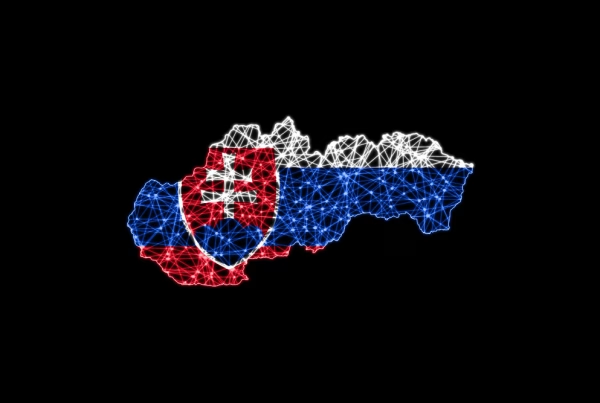Key Takeaways
- MGA License offers operators access to European markets, a robust regulatory framework, and reliable player protection.
- The application process is divided into four stages: Fit and Proper checks, Business and Technical ability review, System review, and Compliance audit.
- There are four types of licenses: Casino games, Betting, Peer-to-Peer games, and Skill games.
- Licensing fees include a €5,000 non-refundable application fee, and annual fees vary by license type.

Executive Overview
For iGaming operators evaluating market positioning, expansion strategies, or eventual exits, the Malta Gaming Authority (MGA) license represents far more than a regulatory compliance requirement—it functions as a strategic asset that directly influences enterprise valuation, market access, and transaction feasibility.
Established in 2001 as one of the industry’s pioneering regulatory frameworks, the MGA has evolved into a Tier-1 licensing jurisdiction commanding global recognition. With oversight of over 300 online gambling operators—representing approximately 10% of worldwide virtual casino activity—the MGA license serves as a critical value driver in M&A due diligence and a fundamental requirement for institutional capital access.
The Strategic Value Proposition
Market Access and Revenue Diversification
An MGA license provides immediate commercial access to Europe’s largest and most lucrative iGaming markets. Through EU mutual recognition frameworks and bilateral agreements, MGA-licensed operators can legally target players across multiple jurisdictions without securing separate local licenses in each territory.
Primary Market Access:
| Jurisdiction | License Recognition | Market Size (2023) | Strategic Value |
|---|---|---|---|
| Germany | Full | €6.2B | Largest EU market, strict compliance regime |
| United Kingdom | Partial* | €14.2B | Requires UKGC for full access, but MGA facilitates B2B |
| Italy | Full | €9.8B | High-yield market with established player base |
| Spain | Full | €5.5B | Growing market with favorable demographics |
| Sweden | Full | €2.6B | Premium market with high ARPU |
*Note: Direct B2C operations in the UK require UKGC licensing, but MGA facilitates B2B partnerships and platform provision.
This multi-jurisdictional access enables revenue diversification strategies that reduce geographic concentration risk—a key factor in both strategic buyer evaluations and private equity underwriting. Operators with demonstrated revenue streams across 3+ major EU markets typically command valuation premiums of 15-25% versus single-market players.
Regulatory Framework as Risk Mitigation
From an M&A perspective, the MGA’s comprehensive regulatory framework functions as a pre-built operational risk management system. The Authority’s requirements directly address primary buyer concerns in due diligence:
Player Protection and Compliance Infrastructure:
- Mandatory deposit limits and self-exclusion protocols reduce responsible gaming liability exposure
- RNG (Random Number Generator) certification ensures game fairness and reduces reputational risk
- AML/KYC compliance frameworks align with EU Fifth Anti-Money Laundering Directive requirements
- Data protection standards meeting GDPR specifications
Operational Oversight:
- 54 on-site audits and 230 desktop compliance reviews conducted annually
- Real-time monitoring of player funds segregation
- Quarterly financial reporting requirements ensuring transparency
- Incident reporting protocols creating audit trails for due diligence
This regulatory rigor, while demanding during operations, dramatically reduces buyer concern regarding “hidden compliance liabilities”—often the primary cause of purchase price adjustments or transaction failures in iGaming M&A.
License Architecture and Portfolio Flexibility
The MGA’s four-tier licensing structure provides strategic flexibility for operators planning expansion or seeking to enhance valuation through vertical diversification:
License Categories:
- Type 1 (Casino Games): Slots, roulette, blackjack, baccarat, and other games of chance. Permits live dealer offerings and progressive jackpots without additional licensing.
- Type 2 (Fixed-Odds Betting): Sports betting, virtual sports, and other fixed-odds wagering. Covers both pre-match and in-play betting products.
- Type 3 (Peer-to-Peer Games): Poker, exchange betting, and other player-vs-player formats where the operator provides platform services and takes commission rather than house edge.
- Type 4 (Controlled Skill Games): Daily fantasy sports, skill-based tournaments, and competitive gaming with outcomes influenced primarily by player skill.
Strategic Consideration: Operators can hold multiple license types simultaneously, enabling rapid market response to emerging verticals without re-application delays. This flexibility is particularly valuable in M&A scenarios where buyers seek “product optionality”—the ability to quickly launch complementary offerings to maximize customer lifetime value.
Financial Architecture and Tax Efficiency
Malta’s tax framework provides significant EBITDA advantages that directly impact valuation multiples:
Tax Structure:
| Component | Nominal Rate | Effective Rate | Application |
|---|---|---|---|
| Corporate Tax | 35% | ~5%* | After shareholder rebates |
| Gaming Revenue Tax (Type 1/2) | 4% max | 1.25-4% | Tiered based on revenue |
| Gaming Revenue Tax (Type 4) | Lower tier | 0.5-2% | Skill games premium |
*Effective corporate tax rate achieved through Malta’s participation exemption and shareholder refund mechanisms
Critical M&A Implication: The differential between Malta’s effective 5% corporate tax rate and typical EU rates (19-30%) creates substantial cash flow advantages. For an operator generating €20M EBITDA, this represents €3-5M in annual tax savings—equivalent to €24-40M in additional enterprise value at typical 8x EBITDA multiples.
Additionally, operators pay gaming tax only on Maltese-sourced revenue (i.e., players located in Malta), while international revenue faces no additional gaming tax burden. This territorial approach enables high-margin international expansion.
The Licensing Process: An M&A Readiness Framework
Understanding the MGA licensing process is essential for operators planning transactions, as the four-stage framework directly parallels institutional due diligence requirements.
Stage 1: Fit and Proper Assessment
The MGA conducts comprehensive background investigations of all key persons (directors, ultimate beneficial owners holding >5% equity, senior management):
Evaluation Criteria:
- Financial probity and creditworthiness (personal credit checks, bankruptcy searches)
- Professional competence and relevant industry experience
- Criminal record checks across all jurisdictions of residence/operation
- Source of funds verification for initial capitalization
- Reputation checks including media searches and reference calls
M&A Parallel: This mirrors Vendor Due Diligence (VDD) management team assessments. Operators who maintain current background checks and documentation experience 30-45 day reductions in buyer due diligence timelines.
Stage 2: Business and Technical Capability Review
Applicants must demonstrate both business viability and technical competence:
Business Requirements:
- Three-year financial projections with revenue models and cash flow forecasts
- Marketing and customer acquisition strategies with CAC/LTV economics
- Responsible gaming policies and player protection frameworks
- Risk management procedures and compliance monitoring protocols
- Organizational structure including operational leadership
Technical Requirements:
- Gaming platform architecture and redundancy systems
- Payment processing integration (minimum 3 payment methods)
- Geolocation and player verification technologies
- Game integration partnerships with certified suppliers
- Data security and GDPR compliance infrastructure
M&A Parallel: These requirements establish baseline operational quality standards. Buyers can reference MGA-approved business plans and technical architectures during due diligence, significantly reducing operational assessment timelines.
Stage 3: Systems and Controls Audit
An independent third-party auditor (approved by MGA) conducts comprehensive technical and operational reviews:
Audit Scope:
- Player registration and identity verification processes
- Game logs and transaction recording systems
- Responsible gaming tool functionality (deposit limits, self-exclusion, reality checks)
- Payment integration and player fund segregation
- RNG implementation and game fairness protocols
- Reporting capabilities for regulatory submission
M&A Parallel: This third-party validation provides buyers with independent assurance regarding platform integrity. Operators with recent clean audit reports often negotiate reduced buyer operational due diligence scope, decreasing transaction costs by €50,000-150,000.
Stage 4: Ongoing Compliance Monitoring
Post-licensing, operators must maintain continuous compliance through:
Annual Requirements:
- Compliance audit by independent auditor
- Financial reporting (audited accounts, player funds reconciliation)
- Incident reporting for material events (outages, breaches, disputes)
- KYC/AML transaction monitoring and suspicious activity reporting
- Responsible gaming metrics reporting (self-exclusions, complaints, chargebacks)
M&A Parallel: This ongoing compliance creates a comprehensive data room foundation. Operators maintaining organized regulatory reporting files reduce due diligence document requests by 40-60% and demonstrate operational maturity that buyers value highly.
Timeline and Cost Considerations
Application Timeline
- Preparation Phase: 2-4 months (documentation gathering, policy development, system configuration)
- MGA Review Phase: 4-8 months (assuming complete submission and responsive applicant)
- Systems Audit: 1-2 months (concurrent with late-stage MGA review)
- Total Time to License: 7-14 months from initial preparation to license issuance
Strategic Consideration for M&A: Operators planning exits should initiate MGA applications 18-24 months before anticipated transaction timelines, allowing 12+ months of compliance history that buyers find credible.
Financial Investment
| Cost Component | Amount | Frequency | Notes |
|---|---|---|---|
| Application Fee | €5,000 | One-time | Non-refundable, due at submission |
| Annual License Fee (Type 1/2) | €25,000 | Annual | Due each license anniversary |
| Annual License Fee (Type 4) | €10,000 | Annual | Lower tier for skill games |
| Compliance Audit | €15,000-35,000 | Annual | Varies by operator complexity |
| Legal/Consulting | €50,000-150,000 | Application phase | Depends on internal capabilities |
Total First-Year Investment: €95,000-215,000 (application + annual fee + audit + advisory)
Ongoing Annual Cost: €40,000-60,000 (license fee + compliance audit)
Valuation Impact: These costs represent 0.2-0.4% of revenue for operators generating €25M+ annually, yet the license itself often contributes 10-15% to enterprise value through market access and risk reduction.
Transaction Structuring Considerations
Change of Control Requirements
MGA licenses are not automatically transferable in M&A transactions. Any change exceeding 5% ownership requires formal notification, while changes exceeding 50% require full regulatory approval:
Process Requirements:
- 30-day advance notification for minority ownership changes (5-50%)
- Full application process for control changes (50%+ or effective control)
- Fit and Proper assessments of new controlling persons
- Business plan updates reflecting new ownership structure
- Financial capability demonstration by acquirer
Timeline Impact: Change of control approvals typically require 60-90 days. Transaction agreements should include:
- Regulatory approval as closing condition
- Interim operating covenants to maintain license compliance
- Remedies if approval denied (reverse break fees, termination rights)
- Post-closing compliance obligations
Asset vs. Share Purchase Implications
Share Purchase (Most Common):
- License remains with licensed entity, simplifying transfer
- Requires MGA approval of new ultimate beneficial owners
- Preserves operating history and player database
- Maintains supplier relationships and payment processing accounts
Asset Purchase (Less Common):
- Requires new license application by buyer or license transfer
- Player data transfer restricted under GDPR (requires consent)
- Supplier agreements may require renegotiation
- Typically adds 6-12 months to transaction timeline
Strategic Recommendation: Structure transactions as share purchases with regulatory approval conditions to minimize disruption and timeline extension.
Competitive Positioning for Strategic Exits
For operators building toward eventual sale, an MGA license provides multiple valuation enhancement mechanisms:
1. Buyer Universe Expansion
- Strategic Buyers: Established operators seeking geographic expansion or vertical diversification prioritize licensed targets to avoid application timelines
- Private Equity: Institutional investors typically mandate Tier-1 licenses as investment prerequisites
- SPACs/Public Markets: Publicly traded entities face heightened regulatory scrutiny, making licensed assets significantly more attractive
2. Multiple Expansion Drivers
- Regulatory Certainty: Clean compliance history can add 1-2x to valuation multiples (8x vs. 6x EBITDA)
- Market Access: Multi-jurisdiction capabilities command premiums of 15-25% vs. single-market operators
- Revenue Quality: Regulated revenue streams perceived as more sustainable, reducing buyer risk discounts
3. Transaction Acceleration
- Due Diligence Efficiency: Comprehensive MGA documentation reduces buyer assessment timeline by 30-60 days
- Reduced Renegotiation Risk: Third-party audits minimize post-LOI price adjustments
- Cleaner Reps and Warranties: Regulatory compliance reduces escrow requirements and indemnification exposure
Conclusion: The MGA License as Strategic Infrastructure
For iGaming operators, the MGA license should be viewed not merely as regulatory compliance, but as strategic infrastructure that enhances enterprise value, mitigates transaction risk, and expands buyer optionality.
The €95,000-215,000 first-year investment and 7-14 month application timeline represent manageable commitments that generate outsized returns through:
- Access to €38B+ in addressable European markets
- Tax efficiency worth €3-5M annually for mid-sized operators
- Valuation premiums of 15-25% in M&A scenarios
- Reduced due diligence costs and timeline compression
- Expanded buyer universe including institutional capital
Operators planning exits within 3-5 years should prioritize MGA licensing immediately, as the combination of application timeline, compliance history requirements, and buyer preferences makes this a critical long-lead strategic initiative.
For acquisition targets, maintaining exemplary compliance (clean audits, timely reporting, zero material incidents) directly translates to negotiating leverage, multiple expansion, and reduced transaction friction—making regulatory excellence a core component of M&A value creation.
Frequently Asked Questions
1. How does an MGA license impact enterprise valuation multiples in iGaming M&A transactions?
An MGA license typically enhances enterprise valuation by 15-25% compared to unlicensed or lower-tier licensed operators. This manifests through multiple mechanisms: regulatory certainty reduces buyer risk perception (adding 1-2x to EBITDA multiples), market access to €38B+ in EU markets increases revenue potential, and institutional investor eligibility expands the buyer universe. Operators with clean MGA compliance histories often achieve 8-12x EBITDA multiples versus 5-7x for those with regulatory uncertainties. The license also reduces earn-out discount rates as buyers perceive lower execution risk in regulated environments.
2. What is the realistic timeline for completing an MGA license transfer during an acquisition, and how should this be reflected in transaction agreements?
MGA license transfers for change-of-control transactions require 60-90 days for regulatory approval, though complex ownership structures can extend this to 120 days. Transaction agreements should include: (a) regulatory approval as an explicit closing condition, (b) seller obligations to maintain compliance during interim period, (c) buyer cooperation requirements for Fit and Proper submissions, and (d) reverse break fees (typically 3-5% of purchase price) if approval is denied due to buyer-side issues. Sophisticated SPAs include detailed interim operating covenants restricting material business changes that could jeopardize regulatory approval. Budget 75 days post-signing for approval in standard transactions.
3. Can an operator hold multiple MGA license types simultaneously, and what are the implications for vertical expansion strategies?
Yes, operators can hold all four MGA license types concurrently (Casino, Betting, P2P, Skill Games), which provides significant strategic flexibility. This enables rapid vertical expansion—for example, a Type 1 (Casino) license holder can add sports betting by obtaining Type 2 without restarting the full application process. From an M&A perspective, multi-license operators command premiums as they offer buyers immediate product diversification options. The incremental cost is manageable (€25,000 annual fee per license type), while revenue diversification can add 10-15% to valuation by reducing single-product concentration risk. Buyers increasingly seek “product optionality” where they can launch complementary verticals within 60-90 days rather than waiting 12+ months for new licenses.
4. How does Malta’s tax structure compare to other iGaming jurisdictions from an M&A deal structuring perspective?
Malta’s effective corporate tax rate of ~5% (achieved through shareholder rebates from the nominal 35% rate) plus gaming revenue taxes of 1.25-4% creates substantial EBITDA advantages versus competing jurisdictions. Compared alternatives: Curacao (~2% revenue tax but limited EU recognition), Gibraltar (10% corporate tax, 1% gaming tax on first £10M revenue), UK (19% corporate tax, 21% POC tax on gaming revenue), and Cyprus (12.5% corporate tax). For a €20M EBITDA operator, Malta’s structure yields €3-5M annual tax savings versus UK jurisdiction—equivalent to €24-40M in additional enterprise value at 8x multiples. Malta’s holding company structures also enable tax-efficient dividend repatriation to PE/strategic buyers, enhancing IRR calculations by 200-300 basis points. Additionally, Malta’s 75+ double-tax treaties facilitate cross-border deal structuring with minimal tax leakage.
5. What compliance history and documentation should sellers prepare in advance to accelerate buy-side due diligence in an MGA-licensed entity sale?
Sellers should maintain an organized virtual data room including: (a) all MGA correspondence (applications, approvals, audit reports, incident notifications), (b) three years of compliance audit reports with management response letters, (c) Fit and Proper documentation for all key persons with current status, (d) quarterly financial reports submitted to MGA, (e) responsible gaming metrics (self-exclusions, complaints, resolution times), (f) AML/KYC policies and suspicious activity reports, (g) player fund segregation proof and bank confirmations, (h) RNG certificates and game fairness testing results, and (i) marketing compliance documentation. Operators maintaining this documentation experience 40-60% fewer due diligence requests and 30-45 day timeline reductions. Critical best practice: conduct annual mock audits using buy-side DD checklists to identify gaps 12-18 months before anticipated sale, allowing remediation time that prevents last-minute purchase price adjustments.





